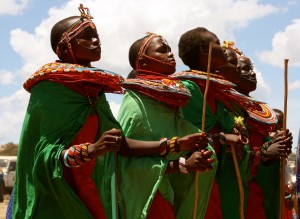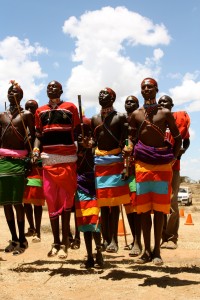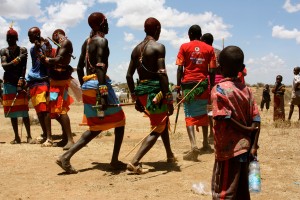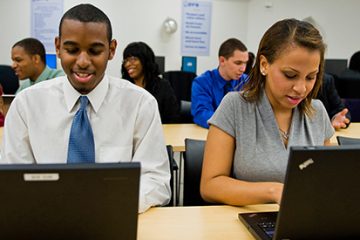“Looking back, it was pretty crazy,” Sarah Hodsdon said of her idea to travel to Kenya. The fifth-year senior, majoring in international affairs with a minor in social entrepreneurship, just returned from a leave of absence during which she journeyed around the African country. When asked how she came up with the idea to go, she describes her ambition to expand her knowledge of income development beyond that of microfinance and her choice of Kenya due to it’s burgeoning market and countless opportunities for social sector progress.
Arriving without a concrete plan, Sarah did not hesitate to jump in with both feet, so to speak. She began attending conferences and taking meetings with companies including the Savannah Fund, Open Capital, TechnoServe, Grameen Foundation, mSurvey, iHub, Nailab, Tropical Fresh, and the Acumen Fund. Her biggest challenge was “trying to learn as much as [I could] while still being really humble.” Sarah worked hard to make connections and procure meetings, maneuvering around the city using congested public transportation. In one instance, after standing shoulder to shoulder with people on a long, hot bus ride, she stepped off the vehicle, only to be drenched in mud as a car drove past, moments prior to a meeting with Acumen Fund. However, she did not allow inconveniences like this to hamper her intrigue. Her open mind and thirst for knowledge allowed her to learn from the companies with which she met.
Accordingly, her meetings with these businesses quickly led her to an awareness of the difference between invention and innovation. She realized that when people invent a product without consideration of the intended market, it often does not succeed. Not only do entrepreneurs encounter this problem, but multinational companies do as well. The solution to this seems to come from the creation of a product “alongside the market,” taking into account the local culture, including product tastes and preferences. This realization that it is not solely access to funds which impedes an item’s success in the market, but an understanding—or misunderstanding—of consumer demand, surprised Sarah the most throughout her travels. Correspondingly, she found it interesting how young companies would increase marketing rather than attempt to understand consumers.
This surprise and interest bolstered her intrigue in the recent startup, MobileSurvey (mSurvey). When asked about the business she describes it: “Launched within the past two years out of MIT, this company works to generate real-time data on companies’ products and consumers in emerging markets that is often difficult to access. By leveraging the widespread use of mobile phones in Kenya, mSurvey is able to develop feedback loops between companies and their consumers through SMS surveys that enable product tracking and validation. In remote areas where end-beneficiaries are highly dispersed, the company’s cloud technology works to build their voice into companies’ ongoing strategy development quickly and effectively.” In other words, mSurvey collects information about products and consumers through surveys conducted on mobile phones. The ability to use mobile devices to organize surveys greatly increases the efficiency and amount of material available to businesses about their products. Sarah met the CEO of mSurvey at the DEMO Africa Conference and her genuine interest, as well as hard work, that has led to a job opportunity for her at the company once she graduates this spring.
The way in which she acquired her impending job embodies her advice on how to network effectively. She advises a person to establish a relationship with another person out of a “common thread.” She believes that the ability to discuss this shared knowledge can lead to a job offer “organically in conversation.” She also encourages students to create business cards because “they make connecting with people incredibly easy and natural.” Additionally, she recommends researching local opportunities, including “social gatherings with young people, [because] there are so many resources in the city [of Boston].”
Overall, Sarah’s leave of absence allowed her to increase her knowledge and her opportunities. She will be returning to Kenya to work with mSurvey where she will continue to learn about emerging markets and refine her expertise. If you want to read more about her time in Kenya, make sure to check out her blog!





